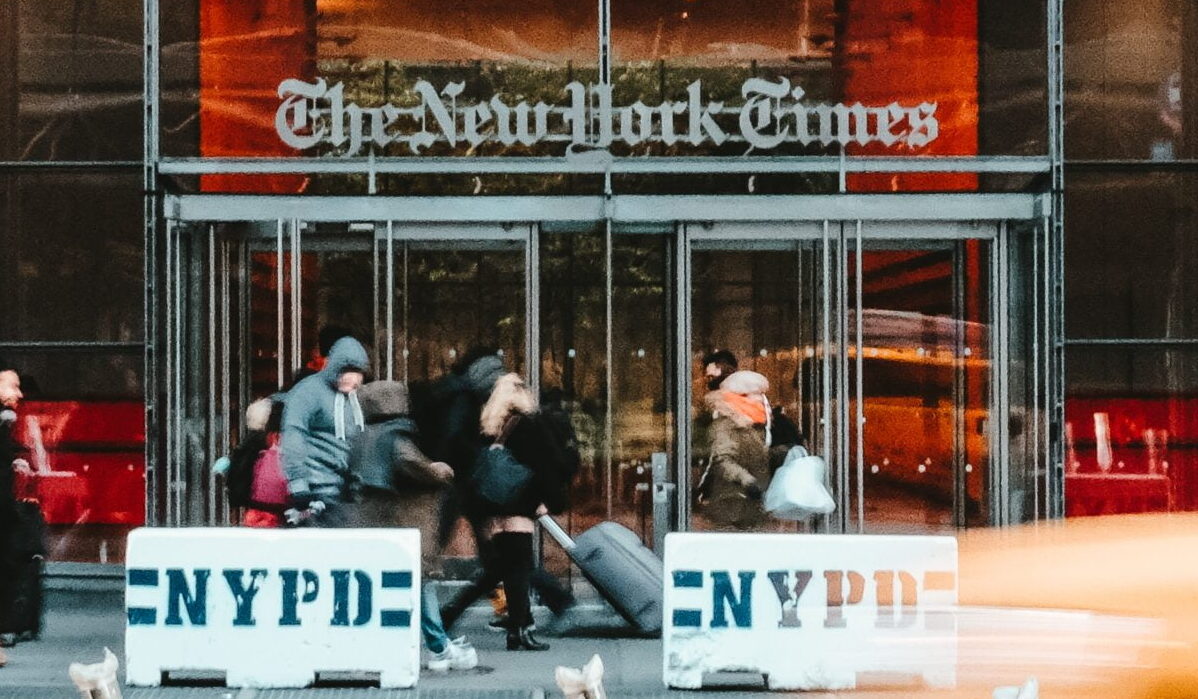New York Times may sue OpenAI, potentially altering the AI landscape forever

Update –
- The NYT is now also blocking OpenAI's web crawling bot "GPTBot" via its robots.txt.
The New York Times is considering a lawsuit against OpenAI, according to a media report. The outcome of this lawsuit could have a lasting impact on the AI industry.
The reason for the lawsuit is reportedly that ChatGPT could compete with the content of the New York Times - based on content it has produced itself. In particular, the NYT is reportedly concerned about the AI-powered search offered by Bing and Google, which responds to queries with direct answers rather than links, thus driving less traffic to the publisher's pages.
The two parties have been in difficult negotiations over a licensing deal for weeks, but have been unable to reach an agreement, NPR reports. The talks are so deadlocked that the New York Times is now considering a lawsuit. NPR cites two anonymous sources with knowledge of the negotiations.
This also sheds new light on two recent decisions by both sides that could pave the way for the lawsuit. The New York Times now explicitly prohibits AI companies from processing its content in its terms of service.
And OpenAI recently disabled ChatGPT's browsing feature, allegedly because it can peek behind paywalls. That would probably have been a big point for OpenAI's opponent in court.
However, the browsing feature also hurts publisher sites without paywalls, as they lose traffic and thus monetization. OpenAI may have disabled the browsing feature in anticipation of a potential lawsuit, or even a court defeat, and used the paywall issue as a (legitimate) smokescreen.
New York Times will not be part of collective publisher lawsuit
Previously, there were reports that the NYT and other major publishers were in talks with OpenAI and other AI companies, and that a lawsuit could not be ruled out. However, according to Semafor, the New York Times withdrew from these joint discussions, or more accurately, never fully committed to them.
The legal dispute with the New York Times would be one of many for Big AI - and at the same time one with special weight: If one of the most internationally renowned media companies were to prevail against OpenAI, this decision would presumably have reference character and thus consequences for the entire AI industry, which would have to look for new training data and possibly no longer fully utilize existing AI models or would have to retrain them.
Basic functions such as using the Internet in real time for up-to-date information would be called into question. This could significantly slow the technological progress of AI.
AI News Without the Hype – Curated by Humans
As a THE DECODER subscriber, you get ad-free reading, our weekly AI newsletter, the exclusive "AI Radar" Frontier Report 6× per year, access to comments, and our complete archive.
Subscribe nowAI news without the hype
Curated by humans.
- Over 20 percent launch discount.
- Read without distractions – no Google ads.
- Access to comments and community discussions.
- Weekly AI newsletter.
- 6 times a year: “AI Radar” – deep dives on key AI topics.
- Up to 25 % off on KI Pro online events.
- Access to our full ten-year archive.
- Get the latest AI news from The Decoder.